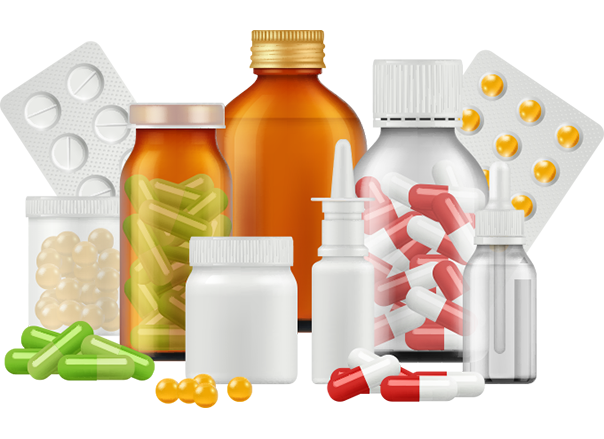The life sciences industry is one of the most dynamic and essential sectors globally. It plays a pivotal role in the development of pharmaceuticals, biotechnology, medical devices, diagnostics, and a wide range of other health-related products. Among the various segments of this industry, wholesale distributors play a crucial role in ensuring that products reach healthcare providers, researchers, and institutions. These distributors bridge the gap between manufacturers and end-users, making them vital players in the supply chain.
This article explores the role of Lifesciences wholesale distributors, their significance, and the factors to consider when choosing a reliable distributor. It also provides insights into the various types of products they handle and how they contribute to the growth of the life sciences industry.
Understanding Life Sciences Wholesale Distributors
What is a Life Sciences Wholesale Distributor?
A life sciences wholesale distributor is a company that purchases life sciences products from manufacturers and then sells them in bulk to retailers, medical institutions, research laboratories, pharmaceutical companies, and other healthcare providers. They serve as intermediaries, ensuring that the products are delivered to the right place at the right time.
Distributors in this sector are responsible for managing a wide variety of products, ranging from pharmaceuticals and medical devices to laboratory equipment and consumables. Their role is essential in making sure that these critical products are available for use in research, clinical settings, and patient care.
Types of Products Handled by Life Sciences Distributors
Lifescience wholesale distributors manage an extensive range of products that are used across different industries within life sciences. Some of the most common categories of products they distribute include:
1. Pharmaceutical Products
Pharmaceuticals are perhaps the most critical products that life sciences distributors handle. They include prescription medications, over-the-counter drugs, vaccines, and biologicals. These products are essential in treating patients and preventing diseases. Distributors ensure that these products are delivered to pharmacies, hospitals, and healthcare providers efficiently and in compliance with regulations.
2. Medical Devices and Equipment
Medical devices range from simple tools like thermometers to complex machinery such as MRI machines. Distributors in this category provide critical medical equipment to healthcare facilities, ensuring that doctors, nurses, and other healthcare professionals have access to the tools they need to diagnose and treat patients effectively.
3. Laboratory Supplies and Equipment
Research institutions, universities, and biotechnology companies require various laboratory supplies and equipment for experiments and studies. These products include laboratory glassware, chemicals, reagents, test kits, and even highly specialized tools for genetic sequencing and protein analysis. Life sciences wholesale distributors play a key role in ensuring that researchers and laboratories have access to high-quality and timely products.
4. Biotechnology Products
Biotechnology companies often produce products related to genetic research, vaccines, and personalized medicine. Distributors handle products like cell culture media, gene editing tools, diagnostic kits, and bioreactors. They ensure that biotech companies, as well as hospitals and clinics, receive the necessary equipment to advance scientific research and patient care.
5. Diagnostic Products
Diagnostic products are crucial in the detection of diseases and conditions. These products include test kits for detecting infections, blood glucose meters, and other diagnostic tools. Distributors supply hospitals, clinics, and testing centers with the necessary tools to conduct accurate and timely diagnoses.
6. Nutraceuticals and Supplements
Life sciences wholesale distributors also handle nutraceuticals, dietary supplements, and functional foods. These products support the overall health and well-being of individuals and are often used for prevention or treatment of health issues. Nutraceuticals and supplements are distributed to health stores, pharmacies, and wellness centers.
The Importance of Life Sciences Wholesale Distributors
Us Wholesale Vendors play an indispensable role in the life sciences industry. Below are some reasons why their presence is critical:
1. Efficient Supply Chain Management
Wholesale distributors ensure that products move smoothly from manufacturers to end-users. They manage the logistics, storage, and distribution of products, which helps streamline the supply chain. This efficiency ensures that healthcare providers and researchers have quick access to the products they need, preventing shortages that could impact patient care or research timelines.
2. Compliance with Regulatory Standards
The life sciences industry is heavily regulated to ensure the safety and efficacy of products. Distributors must adhere to these regulations, such as Good Distribution Practices (GDP) and other local and international standards, to ensure that the products they handle are safe for use. Distributors help manufacturers comply with regulatory requirements and ensure the integrity of products during transportation and storage.
3. Expertise in Product Handling
Life sciences products often require specialized handling, such as temperature-controlled storage for vaccines and biologics. Wholesale distributors have the expertise and infrastructure to manage these sensitive products. By providing proper storage, handling, and transportation, they ensure that products maintain their quality and effectiveness.
4. Global Reach
Life sciences wholesale distributors are often part of global supply chains. Their ability to distribute products internationally is crucial for the global health infrastructure. By leveraging networks of regional warehouses and transportation systems, these distributors help bring life-saving products to markets around the world, contributing to the global fight against diseases and health challenges.
5. Cost Savings
By purchasing in bulk from manufacturers and selling to healthcare providers and research institutions, wholesale distributors help reduce the cost of products. They act as intermediaries, allowing healthcare providers to avoid the complexities of direct procurement from manufacturers. This cost-effectiveness can result in more affordable products for patients and research institutions, helping improve healthcare outcomes.
Key Factors to Consider When Choosing a Life Sciences Wholesale Distributor
Selecting the right life sciences wholesale distributor is a critical decision for manufacturers and healthcare providers. Here are key factors to consider when choosing Amazon Fba Distributors:
1. Reputation and Reliability
The reputation of a distributor is a key indicator of its reliability. A good distributor should have a proven track record of delivering products on time, handling products with care, and adhering to regulatory standards. Look for distributors with positive reviews and testimonials from other clients in the industry.
2. Regulatory Compliance
Life sciences products must comply with stringent regulations. It is essential that your distributor is familiar with local and international regulations such as GDP, GMP (Good Manufacturing Practice), and FDA guidelines. Verify that the distributor has the necessary certifications and compliance measures in place.
3. Logistics and Distribution Network
Efficient logistics are crucial in the life sciences sector. Your distributor should have a strong logistics network with capabilities for managing temperature-sensitive shipments, ensuring that products are delivered quickly and safely. Make sure the distributor can handle international shipments if you need to reach global markets.
4. Customer Support and Services
Customer service is a key factor in choosing a distributor. The distributor should offer excellent support, including help with order tracking, product inquiries, and resolving issues. A reliable customer service team can help streamline the ordering process and ensure timely deliveries.
5. Product Range and Availability
Evaluate the range of products that the distributor offers. A broad product selection can help ensure that you have access to all the necessary supplies, equipment, and products needed for your operations. Ensure that the distributor has a consistent stock of high-quality products that meet your specific needs.
Conclusion
Life sciences wholesale distributors are vital players in the global healthcare and research sectors. They play an integral role in making sure that essential products—from pharmaceuticals to medical devices and diagnostic tools—reach the right people at the right time. By ensuring regulatory compliance, optimizing supply chains, and managing the logistics of distribution, Charlie Naylor Key Lifesciences distributors contribute significantly to the overall success of the life sciences industry.
Choosing the right distributor involves assessing factors such as reputation, compliance, logistics, and customer service. By making informed decisions, manufacturers and healthcare providers can ensure a steady and reliable supply of the products necessary for improving health outcomes worldwide.


